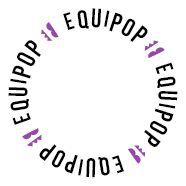« We should use a change-oriented approach in all development projects, because it is people-centered. »


« We should use a change-oriented approach in all development projects, because it is people-centered. »
Un cadre d’apprentissage participatif et engagé Dans un contexte marqué par la persistance des inégalités de genre, des violences systémiques et des conflits, renforcer les capacités des acteur·ice·s féministes demeure
L’Union de l’Action Féministe – section Tanger – œuvre depuis près de trente ans pour la défense des droits des femmes, la lutte contre les violences basées sur le genre
Dans un contexte mondial marqué par la multiplication des conflits, la montée des autoritarismes et la fragilisation des droits humains, les féministes continuent d’imaginer et de construire des alternatives politiques.